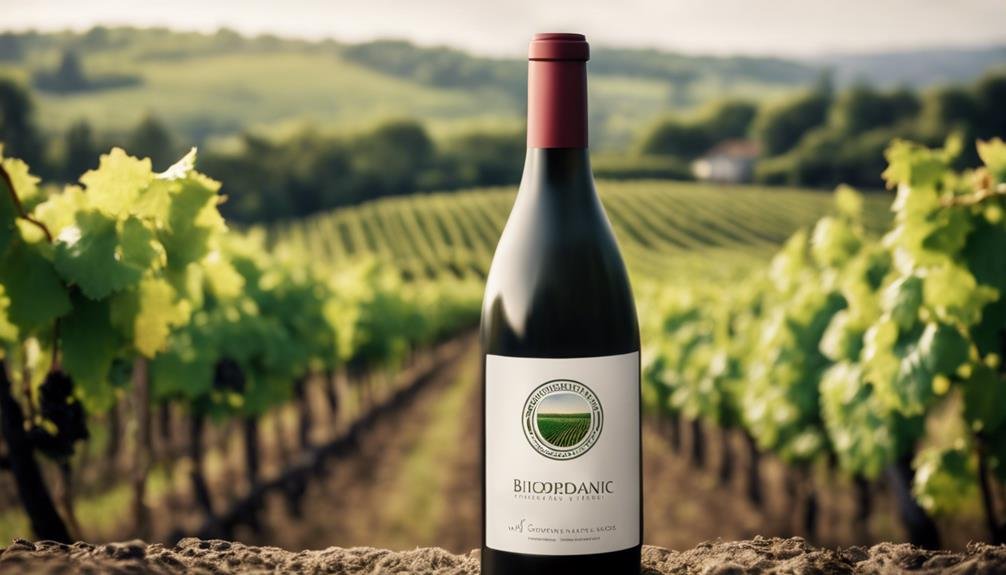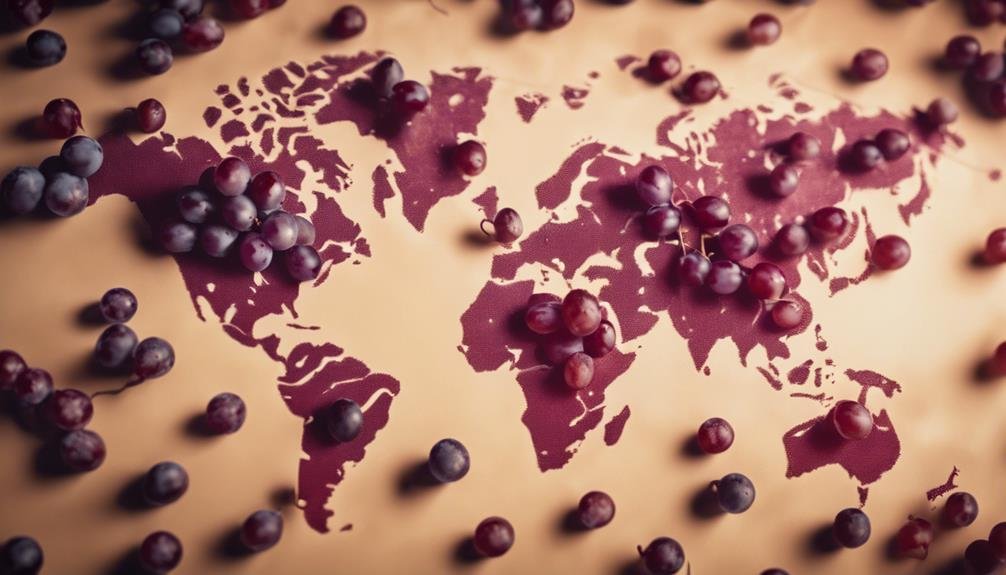Reveal the allure of biodynamic wines, rooted in Rudolph Steiner's spiritual philosophy from the 1920s. By viewing vineyards as self-sustaining ecosystems and integrating celestial influences, these wines embody sustainable and harmonious practices. Embracing nature's interconnectedness, biodynamic winemaking follows holistic, chemical-free standards, enhancing flavors and food pairings. Global demand for these environmentally conscious elixirs is rising, offering a unique connection to the land and showcasing the potential of sustainable farming. Uncover the mystery behind biodynamic wines to savor the essence of their soulful and vibrant creations.
Origins of Biodynamic Winemaking
The roots of biodynamic winemaking can be traced back to the pioneering work of Rudolph Steiner in the 1920s. Steiner developed the biodynamic philosophy, emphasizing a spiritual connection between the vineyard, the earth, and the cosmos.
This holistic approach views the vineyard as a self-sustaining ecosystem, guided by the interconnectivity of the universe. The biodynamic philosophy goes beyond just organic practices, incorporating celestial influences and energy management in vineyard operations.
Steiner's teachings laid the foundation for biodynamic agriculture, promoting a sustainable and harmonious relationship between nature and agriculture. This spiritual connection to the land and the stars continues to be a fundamental principle in biodynamic winemaking, shaping the way vineyards are cultivated and wines are produced.
Principles of Biodynamic Agriculture
Rooted in a deep reverence for nature's interconnectedness and harmonious balance, biodynamic agriculture embodies a holistic and sustainable approach to farming practices. This holistic farming method considers the farm as a self-sustaining ecosystem, where celestial influences play an essential role.
Biodynamic agriculture views the farm as a whole organism, integrating plants, animals, soil, and celestial rhythms into a unified system. By following the biodynamic calendar, which aligns planting, cultivation, and harvesting activities with lunar and celestial cycles, practitioners aim to enhance the vitality and health of the farm.
This approach not only respects nature's interconnectedness but also aims to create a balanced and sustainable environment that supports the long-term health of the soil, crops, and ecosystem.
Certification and Standards for Biodynamic Wines

In the domain of wine production, the rigorous certification and standards governing biodynamic wines play a crucial role in guaranteeing adherence to holistic farming practices and the interconnected principles of biodynamics. Biodynamic certification and verification processes are overseen by organizations like Demeter International and Biodyvin. These entities verify that biodynamic standards and regulations are met by wineries seeking certification. Biodynamic wines must follow strict guidelines, avoiding chemicals and manufactured additions while utilizing natural compost preparations. Certifying bodies such as Demeter and Biodyvin ensure that biodynamic wines are produced in accordance with the principles of biodynamics, providing consumers with a guarantee of quality and authenticity. Below is a table summarizing key aspects of biodynamic certification and standards:
| Aspect | Description |
|---|---|
| Certification Process | Demeter International and Biodyvin oversight |
| Standards Compliance | Adherence to strict guidelines and regulations |
| Avoided Substances | Chemicals and manufactured additions |
| Preparation Methods | Use of natural compost preparations |
| Quality Assurance | Guarantee of adherence to biodynamic principles |
Tasting Biodynamic Wines: Myths Vs. Reality
Exploring the domain of tasting biodynamic wines reveals a nuanced understanding of misconceptions versus actual sensory experiences.
When it comes to tasting biodynamic wines, there are several key points worth noting:
- Flavor profiles: Contrary to misconceptions, biodynamic wines exhibit a wide range of flavor profiles that can be just as diverse and complex as conventional wines.
- Pairing suggestions: The benefits of biodynamic wines extend to food pairing, as their balanced and vibrant flavors can enhance a wide array of dishes.
- Benefits: Tasting biodynamic wines can offer a unique experience, providing a deeper connection to the land and showcasing the potential of sustainable farming practices.
Global Presence of Biodynamic Wines

Upon exploring the diverse sensory experiences and misconceptions associated with tasting biodynamic wines, it becomes evident that these wines have established a notable global presence. With a focus on regional diversity, biodynamic wines are produced in various countries worldwide, showcasing the unique terroir of each region.
Market trends indicate a growing demand for biodynamic wines, driven by consumers seeking environmentally conscious and high-quality products. From the vineyards of France to the valleys of California, biodynamic winemakers are gaining recognition for their commitment to sustainable practices and producing wines that reflect their origins.
As more wineries adopt biodynamic principles, these wines are becoming increasingly accessible to consumers looking for a genuine and holistic wine-drinking experience.
Frequently Asked Questions
Do Biodynamic Wines Have a Specific Taste Profile?
Biodynamic wines do not have a specific taste profile. While they are similar to standard wines, they are believed to reflect their terroir, offering balanced flavors and aging potential. These wines can enhance culinary delights through their subtle flavor nuances.
Are Biodynamic Wines More Expensive Than Conventional Wines?
When comparing price and quality, biodynamic wines can be more expensive than conventional wines due to the specialized practices involved. However, the increased cost is often justified by the perceived higher quality and unique characteristics of biodynamic wines.
Can Biodynamic Practices Benefit the Environment?
Biodynamic practices benefit the environment by enhancing soil fertility and promoting biodiversity conservation. Studies show a 30% increase in soil organic matter with biodynamic farming, facilitating carbon sequestration and sustainable agriculture practices.
Are Biodynamic Wines Better for Your Health?
Biodynamic wines are believed to have health benefits due to their natural farming methods avoiding chemicals. Controversies exist regarding the lack of scientific evidence. Consumer perceptions appreciate the holistic approach, aligning with current trends favoring organic and sustainable products.
How Do Biodynamic Winemakers Determine the Lunar Calendar for Tasks?
Biodynamic winemakers determine tasks based on lunar cycles and astrological influences. This approach aligns with holistic farming principles, optimizing vineyard care. By following celestial rhythms, biodynamic vineyards synchronize activities with nature, enhancing grape quality and wine expression.
Conclusion
In the enigmatic world of biodynamic wines, tradition intertwines with cosmic forces to produce wines that embody the essence of the earth and sky. Through holistic farming practices and celestial alignment, biodynamic viticulture creates wines that captivate the senses and intrigue the mind.
From the vineyard to the bottle, the mystique of biodynamic wines invites us to explore the interconnectedness of nature, sustainability, and the cosmos, offering a truly exceptional and fascinating wine experience.